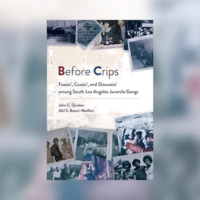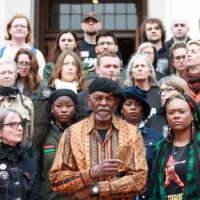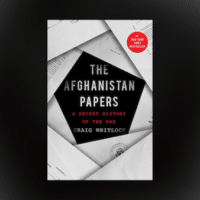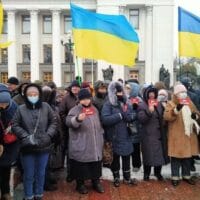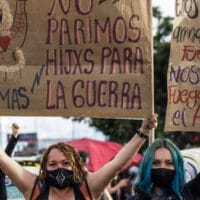-
Malcolm X’s revolutionary trip to Africa
African Stream tells the story of Malcolm X’s political transformation that led to his assassination a few months after his return.
-
International Women’s Alliance uplifts militant grassroots struggles in first U.S.-based conference
Hundreds of mostly women gathered at Catholic University’s Maloney Hall during the first weekend of March to convene the first U.S.-based conference of a worldwide grassroots women’s network called the International Women’s Alliance, as well as help strengthen its fledgling U.S. chapter.
-
Book Review: ‘Before Crips’ dismantles dominant narrative on gangs
For the past several decades, the media has severely manipulated the question of gangs and their socio-economic origins. John C. Quicker and Akil S. Batani-Khalfani’s new book, “Before Crips: Fussin’, Cussin’, and Discussin’” among South Los Angeles Juvenile Gangs, exposes the mainstream stigmas and half-truths surrounding gangs.
-
‘Tools of Russia’: FBI raid on Black Political Party seen as part of ‘Black Scare/Red Scare’ in United States
Black political organizations and other anti-imperialist groups condemned the U.S. Federal Bureau of Investigations (FBI) raiding early Friday morning the properties of the African People’s Socialist Party (APSP) and its solidarity organization in Saint Louis, Missouri, and in Saint Petersburg, Florida.
-
‘God will sort them out’: Ukrainians of Donbass beg NATO to end war
The Russian “special military operation” in Ukraine reached its 90th day and the Western press continues to be inundated with unverified claims of war crimes Russian forces allegedly have committed. Accusations have been lodged against the Russian military for mass graves in Bucha, a narrative which has been widely accepted in North Atlantic Treaty Organization (NATO) countries.
-
‘The Afghanistan Papers’ leaves a critical question unanswered
While Afghanistan may finally be free of outside military occupation, Afghans are still suffering the deadly consequences of 40 years of U.S.-led subversion and war.
-
Ukrainian Refuseniks on why many won’t fight for Ukraine
Aside from reports of civilians volunteering in a variety of non-military support roles, Ukrainian President Volodomyr Zelensky and other state officials have urged civilians to take up arms. Then, on March 9, Zelensky approved a law that allows Ukrainians to use weapons during wartime and negates legal responsibility for any attack on people perceived to be acting in aggression against Ukraine. The Ukrainian Ministry of Defense even posted a graphic online with instructions on how to launch Molotov cocktails at tanks.
-
After decades of oppression, Colombian women lead front lines of National Strike
“Far too many women are fighting—not only for their rights, but for the rights of all,” says Yomali Torres, an Afro-Colombian activist. The 26-year-old joined throngs of women in the streets of Colombia over the past month to demand an end to patriarchal oppression at the hands of a U.S.-backed neoliberal state.
-
Q&A: Filmmaker Ramiro Sebastián Fúnez on “Nicaragua Against Empire” & Getting the story right
The delegation I was on was called, “No to Sanctions in Nicaragua.” The ATC is Nicaragua’s oldest and strongest peasant workers union that played a central role in the Sandinista Revolution and was the organization that facilitated the land redistribution of over 4 million acres to peasants from the landlords, owned by the Somoza family dynasty. – Ramiro Sebastián Fúnez
-
Book Review: ‘Black Spartacus: The Epic Life of Toussaint Louverture’
Surrounded by assasination plots and having been deceived from all sides, Louverture “was extremely reluctant to communicate his intentions even to his leading military officers, or to share power with them in any meaningful way.”
-
The Billionaire boom: 82% of global wealth produced last year went to richest 1%
Forida is a 22-year-old sewing machine operator in a clothing factory in Dahka, Bangladesh. She often works 12-hour days producing clothes for brands such as H&M and Target. Sometimes, during busy production cycles, the hours are even longer.
-
Dilemmas of the radical left in a dying capitalist system
In what I call the pan-European world (North America; western, northern, and southern Europe; and Australasia), the basic electoral choice for the last century or so has been between two centrist parties, center-right versus center-left. There have been other parties further left and further right but they were essentially marginal.
-
Mobilizing against the fascist creep
When economic crisis grips a nation, when contradictions within the ruling class and the state create instability and social upheaval, fascists act as the foot soldiers of capitalism. Their function is to disrupt and destroy efforts on the part of the working-class and oppressed masses to organize against their miserable conditions.



